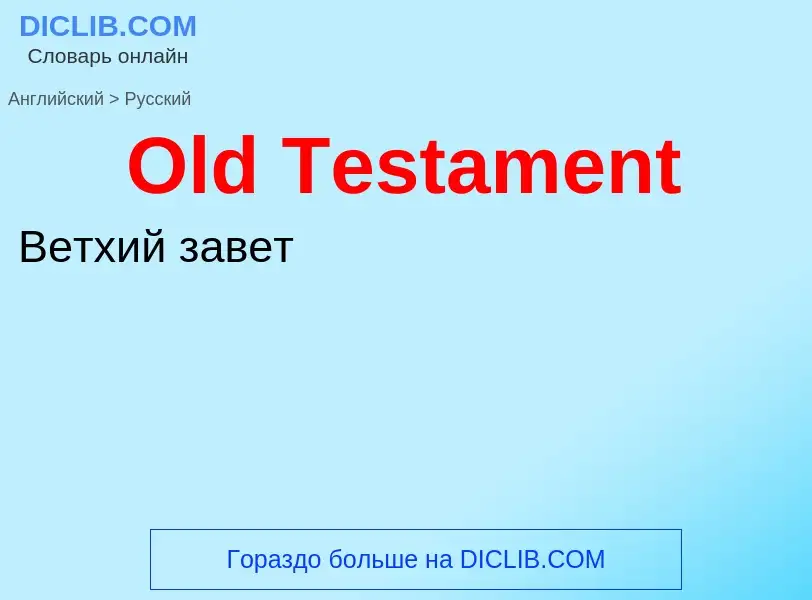O T Old Testament - translation to ρωσικά
Ορισμός
. ·сокр. т. е., то есть; т. к., так как; и т. д. и так далее; и т. п., и тому подобное; т., том; тысяч.
Βικιπαίδεια

The Old Testament (OT) is the first division of the Christian biblical canon, which is based primarily upon the 24 books of the Hebrew Bible or Tanakh, a collection of ancient religious Hebrew and occasionally Aramaic writings by the Israelites. The second division of Christian Bibles is the New Testament, written in the Koine Greek language.
The Old Testament consists of many distinct books by various authors produced over a period of centuries. Christians traditionally divide the Old Testament into four sections: the first five books or Pentateuch (corresponds to the Jewish Torah); the history books telling the history of the Israelites, from their conquest of Canaan to their defeat and exile in Babylon; the poetic and "Wisdom books" dealing, in various forms, with questions of good and evil in the world; and the books of the biblical prophets, warning of the consequences of turning away from God.
The books that compose the Old Testament canon and their order and names differ between various branches of Christianity. The canons of the Eastern Orthodox and Oriental Orthodox Churches comprise up to 49 books; the Catholic canon comprises 46 books; and the most common Protestant canon comprises 39 books.
There are 39 books common to essentially all Christian canons. They correspond to the 24 books of the Tanakh, with some differences of order, and there are some differences in text. The additional number reflects the splitting of several texts (Samuel, Kings, Chronicles, Ezra–Nehemiah, and the Twelve Minor Prophets) into separate books in Christian Bibles. The books that are part of the Christian Old Testament but that are not part of the Hebrew canon are sometimes described as deuterocanonical. In general, Catholic and Orthodox churches include these books in the Old Testament. Most Protestant Bibles do not include the deuterocanonical books in their canon, but some versions of Anglican and Lutheran Bibles place such books in a separate section called apocrypha. These books are ultimately derived from the earlier Greek Septuagint collection of the Hebrew scriptures and are also Jewish in origin. Some are also contained in the Dead Sea Scrolls.

